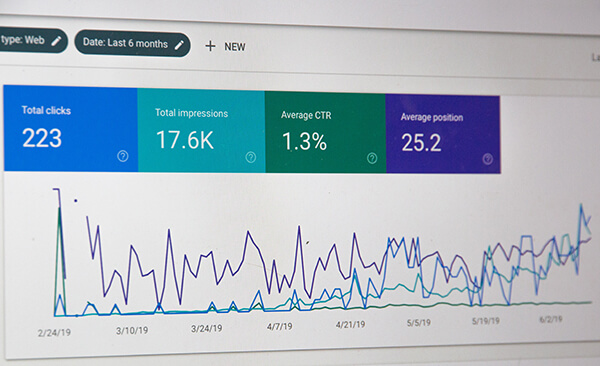What The Heck Is E-A-T And Why Your Online Business Needs It: How to create content that Google loves

When you have a brick-and-mortar shop, you build a reputation on your products and services. You would think the same goes for your online presence, but it’s a bit more complicated than that.
If you’re unfamiliar with E-A-T, it stands for expertise, authoritativeness, and trustworthiness. It’s a term taken from Google’s Quality Rater Guidelines, a set of instructions that Google’s army of many thousands of human reviewers (known internally as “raters” or “Search Quality Evaluators”) use to assess the quality of web content manually.
Although it is sometimes difficult to understand Google’s internal processes, from what we’ve heard from reliable sources at Google, E-A-T is applied specifically to YMYL (Your Money or Your Life) websites, that is, to sites that offer medical or financial advice.
As you might expect, Google would rather not serve up misleading or unreliable advice that could affect your financial or physical well-being, so paying particular attention to the information touted on these types of websites is very important.
Now, your website may not be in a financial or medical niche, so technically these guidelines do not affect you directly. After all, Google – so they say – are not applying E-A-T across the board. But this doesn’t mean you shouldn’t worry about E-A-T.
Far from it.
The reality is, expertise, authoritativeness, and trustworthiness are things that every business should be looking to build both online and offline. What business wouldn’t want to be recognized and trusted within (and beyond) their industry?
The problem is, E-A-T is notoriously difficult to measure.
How does Google measure authority?

If you talk to different people in the SEO industry, they will have different theories about the signals that Google uses to assess the authority of your site and assign rankings. We know that backlinks from authoritative sites are one way. CTR (Click Through Rate) is theorized as another, although Gary Illyes of Google contradicted that recently in his Reddit AMA.
We also know that content quality is important. Online reviews may also have some impact.
Exactly how Google uses all these factors to make a decision is somewhat of a mystery, even to Google engineers. That’s because machine learning algorithms are opaque as to which signals they use. No one can see inside the black box – even the programmers who originally coded the AI.
Rather than weighing one particular signal above all others, Google’s approach to assessing authority is more “holistic.” Google’s algorithms almost certainly use a wide range of signals and metrics to evaluate where a page might rank, meaning simply focusing on one signal while ignoring others is not a shortcut to results. Backlinks are crucial; but acquiring high-quality links to a site with shoddy coding, poor online reviews, and spammy content won’t help you.
Instead of looking for a “silver bullet” to achieve rankings and traffic, it’s important to pay careful attention to how you present your brand online. Overall, from the way your site is coded right up to your branding and PR strategies.

I’ll admit, saying that Google’s approach to rankings is “holistic” may sound a little vague and unsatisfying. It begs the question: what do you focus on if you want to optimize your site?
Thankfully, it’s not that difficult.
For the most part, building authority in your niche is common sense. If you’ve been working hard on gaining backlinks from quality sites, creating remarkable content, and ensuring your site is free from errors and thin content, then you’re well on your way.
But what can you do beyond the basics to ensure that Google sees you as a trusted site in your niche?
The answer is simple, but not easy. That is, do whatever it takes to ensure you have a solid reputation both online and offline.
On your site, be completely transparent about who you are. Create detailed “about” pages that put a human face to your company and tell your story. Provide an excellent customer experience and respond to negative reviews online. Be open and honest about your processes and provide expert advice to your clients whenever you get the chance.
Building authority online takes time, but the payoff is huge. Start with the obvious questions. Is there an expert at your company who might be willing to do a TEDx talk? What’s the most respected publication in your industry, and how can you get published there? What about industry groups? What kind of connections do you have in the media that might be able to help you? Do you do any noteworthy charity/nonprofit work that has a powerful message that might be of interest to journalists?
If you’re not sure where to start, hire a PR agency or better yet, buy a book on PR and teach yourself. A successful PR/link building campaign that lands you links from high authority sites will definitely begin to impact your traffic and rankings.
If you’re looking for more quantifiable metrics, then consider investing in tools like Majestic and LinkResearchTools that can give you an indication of how trusted a particular page is.
In Majestic, aim for a Trust Flow score of 50 or above (the highest score is 100) and an LRT Trust score of 5 or above (the highest score is 10). Make sure that you are looking at these metrics at the page level, not just the domain level.
Tracking your trust scores over time will give you a sense of whether your site is increasing or decreasing in trust. Some of the tools even provide a history of trust scores; Majestic, for example, goes back 18 months with their Trust Flow History Tool.
In addition, it is worthwhile to conduct regular surveys of your customers and reviewing brand sentiment metrics to get a sense of how people view your brand. If you see a lot of negative sentiment, you’ll want to take action to remedy it quickly.
As with most things SEO-related, it won’t be a single link or a piece of viral content that suddenly launches you into the pole position. It takes a sincere and sustained effort over months, even years, to get to the top.
Finally, remember that Google’s standards are ever-changing. That is because user expectations of search are always changing as well, and Google needs to keep up to stay relevant – and so do you.

Chapter 6:
Keyword Research
From the fundamentals of link building to the nuances of natural linking patterns, virality, and authority.
Related Posts

Thursday Three: Embrace Journaling, Tackle Tardiness, and Explore Our Energetic Echo
Here’s what I found inspirational, challenging, or just downright hilarious this week. What caught your eye? And, remember to check out this week’s great podcast episodes: Scaling a SaaS Company with Jason Morehouse “A crucial factor to business success is to find and take the personal path that works best for you.” — Jason Morehouse […]
Read More
Thursday Three: Harrison’s harmony, conquering a blank canvas, & gut health hacks
Here’s what I found inspirational, challenging, or just downright hilarious this week. What caught your eye? And, remember to check out this week’s great podcast episodes: Be a Sales Game Changer with Fred Diamond “True elite sales professionals develop a dedicated mindset, proactive client interaction, and continuous self-preparation. They understand their client’s needs and enable […]
Read More
Thursday Three: Rebirth of sleeper trains, 4,000 weeks is a long/short time, and golden age for medicine
Here’s what I found inspirational, challenging, or just downright hilarious this week. What caught your eye? And, remember to check out this week’s great podcast episodes: A Story Worth Retelling with Luke Storey “Aligned values are the cornerstone of successful partnerships, whether in business or life, as they shape our moral code, define our priorities, […]
Read More
